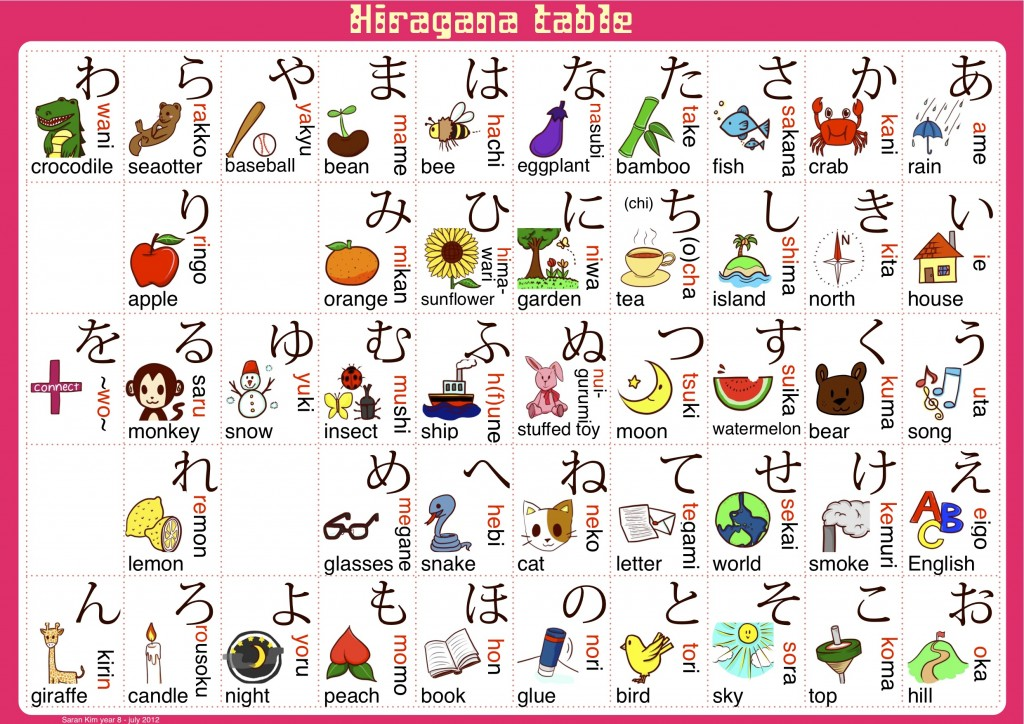- 1.Communicate with over 125 million speakers
- 2. Love Japanese food
- 3. Learn other East Asian languages
- 4. Memory and health benefits
- 5. Cultural gateway
- 6. Increased career prospects
- 7. Business opportunities
- 8. Japanese speakers on the internet
- 9. Innovative Japanese culture
- 10. Cultural exports
- 11. Set yourself apart in the job market
- 12. International tourism
- 13. Easier to learn than you think
- 14. A stepping stone to other languages
- 15. Job opportunities in japanese companies
- 16. Network with global professionals
- 17. Teach English in Japan
- 18. Higher education in Japan
- 19. Visit Japan
- 20. Open up to new music and entertainment
Curious about why learn Japanese? This language opens doors to a world of opportunities, from connecting with millions of speakers to exploring Japan’s rich culture and advancing your career. Discover the many benefits of learning Japanese and why now is the perfect time to start! Keep reading to learn more.
1.Communicate with over 125 million speakers
Japanese is the official language of over 125 million people worldwide, primarily in Japan. According to the CIA World Factbook, Japan is the third-largest economy globally (after the US and China), and Japanese is widely used in international trade.
With approximately 1.2 million Japanese people living abroad, why learn Japanese? Learning Japanese allows you to communicate not only in Japan but also with the Japanese communities in other countries. This makes it an important skill for those looking to engage in global business or cultural exchange, showcasing just why learning Japanese can be a valuable asset.
2. Love Japanese food
Japanese cuisine is not only famous for sushi, ramen, and takoyaki but was also recognized as an Intangible Cultural Heritage by UNESCO in 2013. Japan has one of the world's most advanced food industries, and its food market is expanding globally.
According to Euromonitor International, Japanese restaurant chains in the US and other Western countries have seen significant growth in recent years. Learning Japanese helps you understand the ingredients, cooking methods, and traditions behind the food.

3. Learn other East Asian languages
Learning Japanese is a great stepping stone to learning other East Asian languages like Korean and Chinese. For example, Korean shares many grammatical similarities with Japanese.
According to the Korean Foundation, why learn Japanese? Learning Japanese helps you easily grasp the use of honorifics and the polite sentence structures common in both Korean and Japanese. Additionally, Kanji characters used in Japanese are similar to Chinese characters, making it easier for Japanese learners to understand Chinese. This highlights why learning Japanese can be beneficial not only for understanding Japanese culture but also for expanding your language skills to other important East Asian languages.
4. Memory and health benefits
Studies from University of Edinburgh show that learning Japanese can improve memory and information processing. Specifically, for older adults, learning a new language boosts brain health and delays memory issues.
A 2021 study in Frontiers in Psychology revealed that people who learn complex languages like Japanese may reduce cognitive decline. Additionally, learning a language like Japanese can enhance flexibility and concentration.
5. Cultural gateway
Japanese is not just a language; it is a gateway to exploring Japan’s unique culture. Japan hosts famous festivals like Tanabata, Obon, and Aoi Matsuri. According to the Japan National Tourism Organization (JNTO), Japan attracts around 32 million international tourists annually (2023), demonstrating the global appeal of Japanese culture. Learning Japanese allows you to deeply understand and appreciate these cultural events.

6. Increased career prospects
Japanese is a valuable skill in the global job market, especially for those who wish to work in Japanese companies or with Japanese partners. A study by the Japan External Trade Organization (JETRO) shows that over 1,000 Japanese companies are operating in the US, with a high demand for employees who speak Japanese.
According to a Nikkei Asia survey, about 35% of Japanese companies abroad report difficulties in finding employees with Japanese language skills, making learning Japanese crucial for career advancement.
7. Business opportunities
Japan is the third-largest economy in the world, with a GDP of approximately $5.1 trillion in 2023 (World Bank). Japan is a major trading partner for many countries, particularly in technology, automotive, and electronics. Knowing Japanese opens doors to business opportunities and international partnerships. According to Statista, Japan’s export market continues to grow, especially in the fields of technology and electronics.
8. Japanese speakers on the internet
With over 70 million internet users in Japan, Japanese play a significant role in the digital world. According to Statista, Japan ranks fourth in the world in terms of internet users. Platforms like Twitter, YouTube, and Reddit host vibrant Japanese communities. Learning Japanese enables you to access the latest content, news, and trends from Japan and engage with local forums like 2chan.
9. Innovative Japanese culture
Japan is a global leader in innovation, particularly in fields like robotics, AI, and tech startups. The Japan Times reports that Japan leads the robotics industry, with over 1 million robots in use in factories and healthcare. Learning Japanese lets you stay up to date with the latest advancements and inventions. Japan is also known for its creativity in art and design, from fashion brands to consumer electronics.

10. Cultural exports
Japan has a powerful cultural influence, exporting products like anime, manga, and video games worldwide. According to Anime News Network, the global anime market reached $24.5 billion in 2023. Learning Japanese lets you experience these works in their original form, avoiding mistranslations. You will also gain a deeper understanding of Japanese culture through films, TV shows, and video games.
11. Set yourself apart in the job market
Proficiency in Japanese helps you stand out to recruiters and increases your chances of finding a job. LinkedIn reports that Japanese companies are actively recruiting individuals with Japanese language skills to support their global expansion. Global companies, especially in technology and finance, prioritize candidates who can communicate in Japanese.
12. International tourism
With over 31 million international visitors in 2023, tourism is a major industry in Japan, according to the Japan National Tourism Organization. Learning Japanese enhances your travel experience, enabling you to interact with locals, explore historical sites, and enjoy traditional culture. Speaking Japanese also helps you venture off the beaten path to discover lesser-known destinations and live like a local.
13. Easier to learn than you think
While Japanese may seem challenging, it can be easier to learn than you think. The writing systems, Hiragana and Katakana, each contain only 46 characters, making basic learning simpler. According to Duolingo, the number of people learning Japanese on their platform grew significantly in 2023, showing that learning Japanese is easier than ever with the help of online tools.

However, you may wonder, why Japanese is hard to learn? The language has complex writing systems and grammatical structures, but with the right resources and commitment, it becomes more manageable.
14. A stepping stone to other languages
Learning Japanese is an excellent foundation for learning other East Asian languages such as Korean and Chinese. This is especially true for Kanji, which is used in both Japanese and Chinese writing systems.
According to Stanford University’s East Asian Language Program, learning Japanese helps learners recognize and understand about 2,000 Chinese characters, facilitating their transition to learning Chinese. Additionally, the grammatical similarities between Japanese and Korean make learning Korean easier for Japanese speakers.
15. Job opportunities in japanese companies
Japan remains one of the world’s largest economies, ranking third after the US and China. Japanese companies such as Toyota, Sony, and Panasonic operate worldwide and offer numerous career opportunities for Japanese speakers. According to a report from JETRO, there are approximately 19,000 Japanese companies operating in various countries, with increasing demand for Japanese-speaking employees, especially in technology, finance, and international trade.

16. Network with global professionals
Learning Japanese not only helps you communicate with Japanese people but also opens up networking opportunities with professionals worldwide. Japan is a leader in industries like technology, science, and creativity. International events such as the Tokyo Tech Conference and Japan International Robotics Week attract thousands of experts globally. According to the Japan Society of New York, knowing Japanese helps you attend these conferences and connect with industry leaders, expanding your professional network worldwide.
Read more:
Why does japan have 3 alphabets
How many days to learn japanese language
17. Teach English in Japan
Japan has a high demand for English teachers, especially through the JET (Japan Exchange and Teaching) Program, which hires around 5,000 international teachers annually. Learning Japanese helps you integrate better into Japanese culture and is a significant advantage when applying for teaching positions. According to the JET Program, over 65% of participants find stable employment in schools and language centers.

18. Higher education in Japan
Japan boasts a high-quality education system with prestigious universities like The University of Tokyo and Kyoto University. According to the QS World University Rankings 2024 , the University of Tokyo is ranked 28th globally, and Kyoto University ranks 46th. These universities attract international students, especially in fields like engineering, natural sciences, and the arts. Additionally, Japan offers many scholarships for international students, such as the MEXT scholarship, which makes learning Japanese essential for navigating academic life.

19. Visit Japan
Japan is a popular travel destination, attracting over 30 million international visitors in 2024, according to JNTO. Why learn Japanese? Learning Japanese makes your travels more enriching, allowing you to communicate with locals, understand the culture better, and engage in local festivals and activities. It also helps you discover lesser-known spots and experience the country authentically, providing a deeper connection with Japan beyond the typical tourist experience. This is just one of the many reasons why learning Japanese can enhance your travel experiences and make your trips more memorable.

20. Open up to new music and entertainment
Learning Japanese opens up the world of J-pop, anime, and Japanese entertainment without relying on translations. Japan is the second-largest music market globally, valued at $3.6 billion in 2023, according to IFPI. Popular groups like BTS, Arashi, and Perfume are not only famous in Japan but also have a global fan base. Understanding Japanese allows you to enjoy anime and music without subtitles and connect deeply with Japanese culture.

In conclusion, why learn Japanese? Whether it's for cultural exploration, career growth, or personal enrichment, learning Japanese offers countless advantages. From expanding your professional network to immersing yourself in Japan's vibrant culture, the benefits are undeniable. Start learning today and unlock a world of exciting possibilities!








